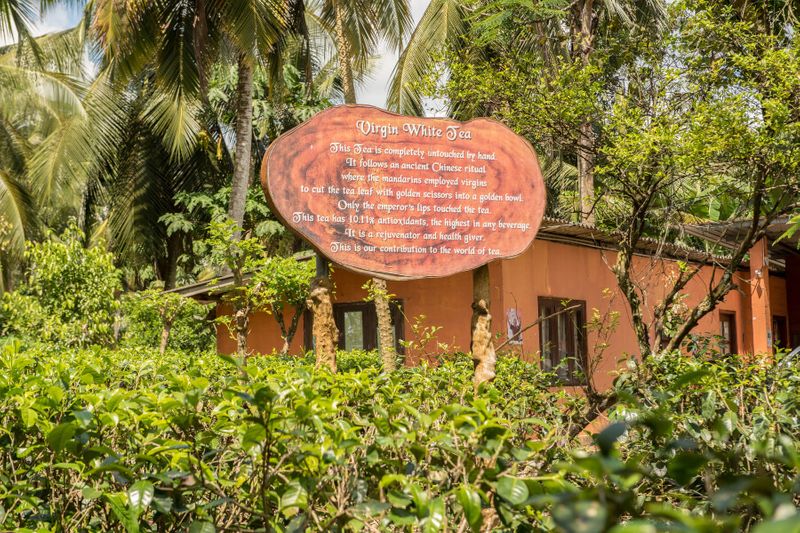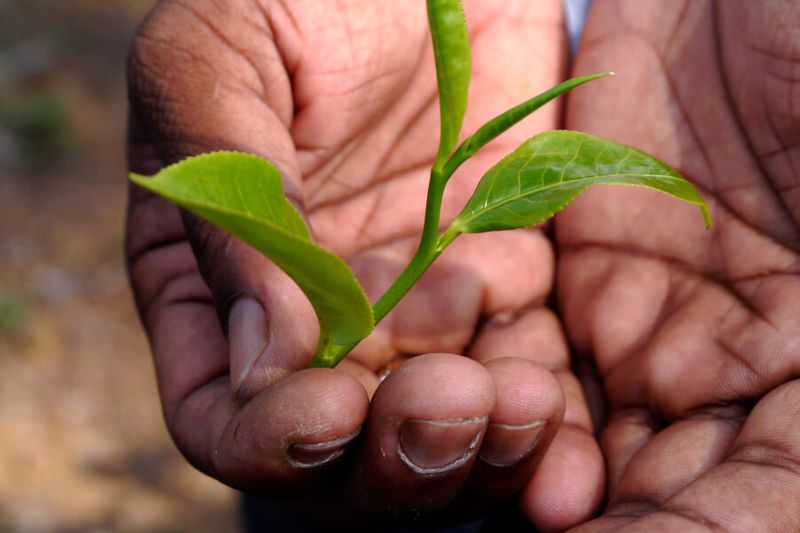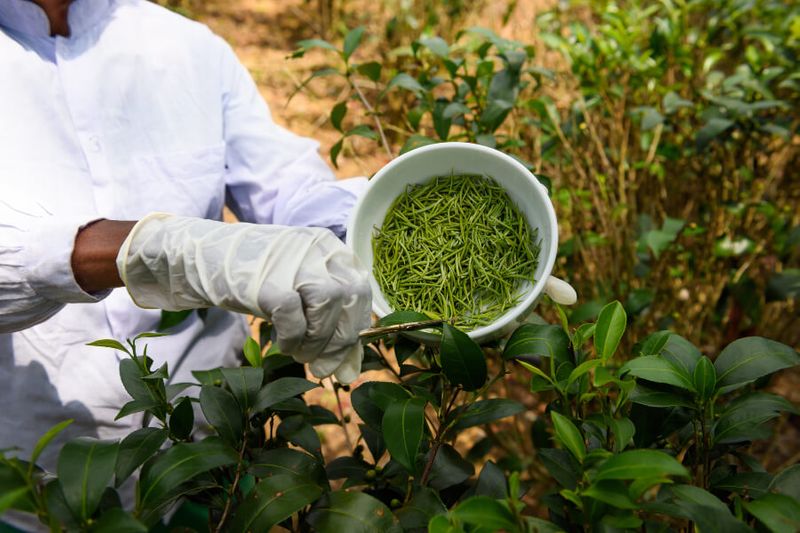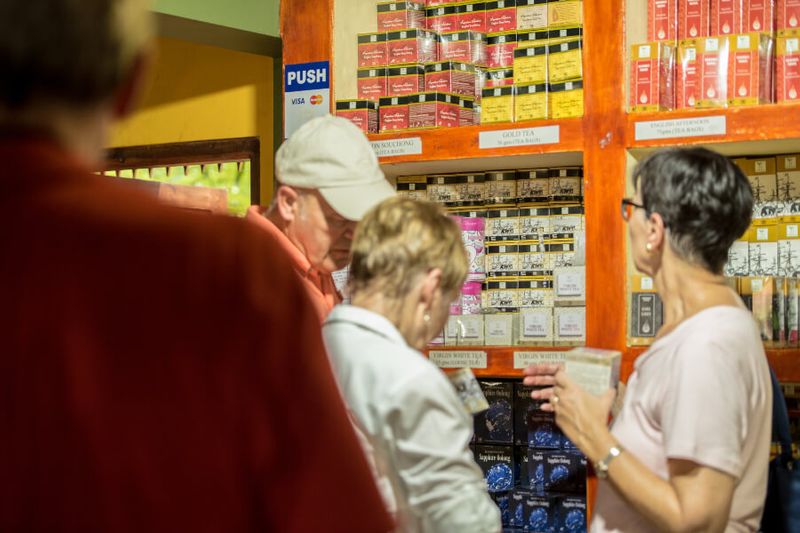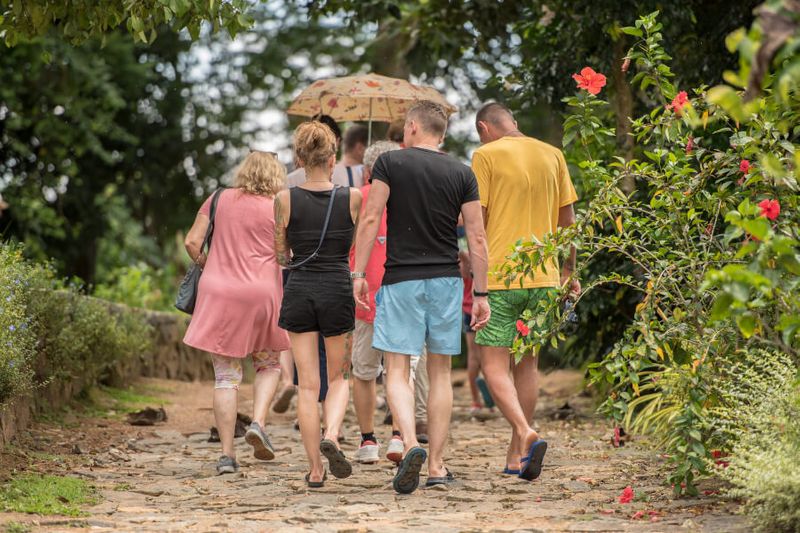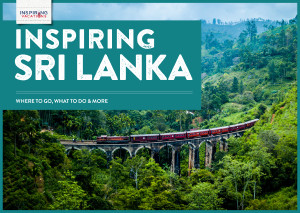Also known as the Virgin White Tea Factory, this estate prides itself for its unsullied white tea that’s supposedly the healthiest in the world
Between Sri Lanka’s historic Galle Fort and the beach town of Mirissa is Handunugoda, a working tea estate and museum known for its impossibly pure white tea. This 200-acre family-owned plantation also grows a combination of rubber, cinnamon, and coconut. Handunugoda also sells other types of tea, including black tea, oolong, and green tea, but the white tea is undoubtedly the star of the show, though it’s definitely more expensive than its counterparts. While Ceylon white tea can be found all over the island, the tea at Handunugoda is different, because it remains completely pristine and untouched by humans, from plant to cup. White tea is supposedly one of the healthiest types of tea, as it’s chock-full of antioxidants.
A virginal history
Hanundugoda is most famous for its white tea, which remains untouched by human hands throughout harvesting and processing; the estate has an on-site factory that uses British-made machines that are over 145 years old. The process was inspired by a 5th-6th century tea harvesting practice in ancient China in which virgins harvested tea with golden scissors – still never touching the tea itself – for the Emperor, Hui Tsung, who was sometimes called the 'Tea Emperor' because of his obsession. Another version of the legend claims that virgin tea-harvesters had to use their mouths to pluck the youngest tea leaves.
Today, the 'virgin' aspect has been thankfully lost, but Handunugoda’s tea harvesters still wear special soft gloves and use special scissors to carefully harvest the closed tea buds from specially chosen tea bushes. The tea is usually harvested at dawn, and placed into silken pouches to ensure that the tea buds are kept safe and whole. The tea buds are then dried on a special black flannel tray, out of direct sunlight, and carefully packed up for sale.
Visiting the estate
Handunugoda offers a wonderful glimpse at a very traditional, rare type of tea harvesting, as well as the opportunity to savour quality small-batch teas on the verandah of the owner’s estate, or at the tea museum – the latter offers a generous tasting menu and, of course, the opportunity to buy teas you fancy. Some of its more exotic teas have won awards, including Ceylon Souchong, Sapphire Oolong, and Flowery Camellia. Handunugoda is also the only tea plantation in the world close to the sea, creating a unique terroir which they claim influences the distinct taste of Handunugoda’s teas.
The biggest draw of the estate is being able to observe their traditional harvesting methods up close, especially that of the Virgin White Tea – visitors can also get a look at the factory, and check out how the estate’s other produce is harvested, namely, the rubber trees. Handunugoda also produces herbal infusions and other flavours like lemongrass, chai, and rainforest teas. If you’re looking for a more active experience, try a horseback ride along the Handunugoda Trail.
